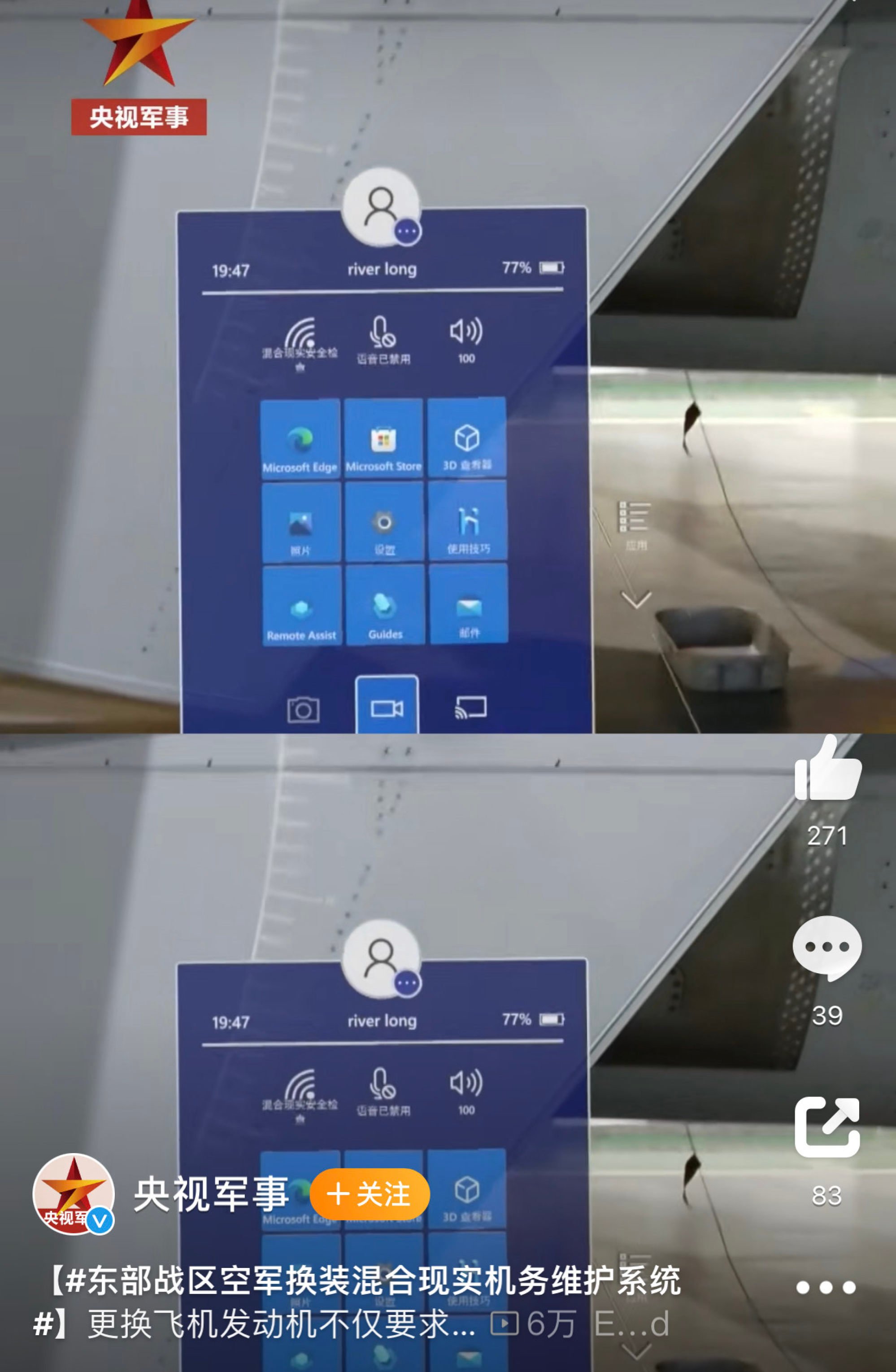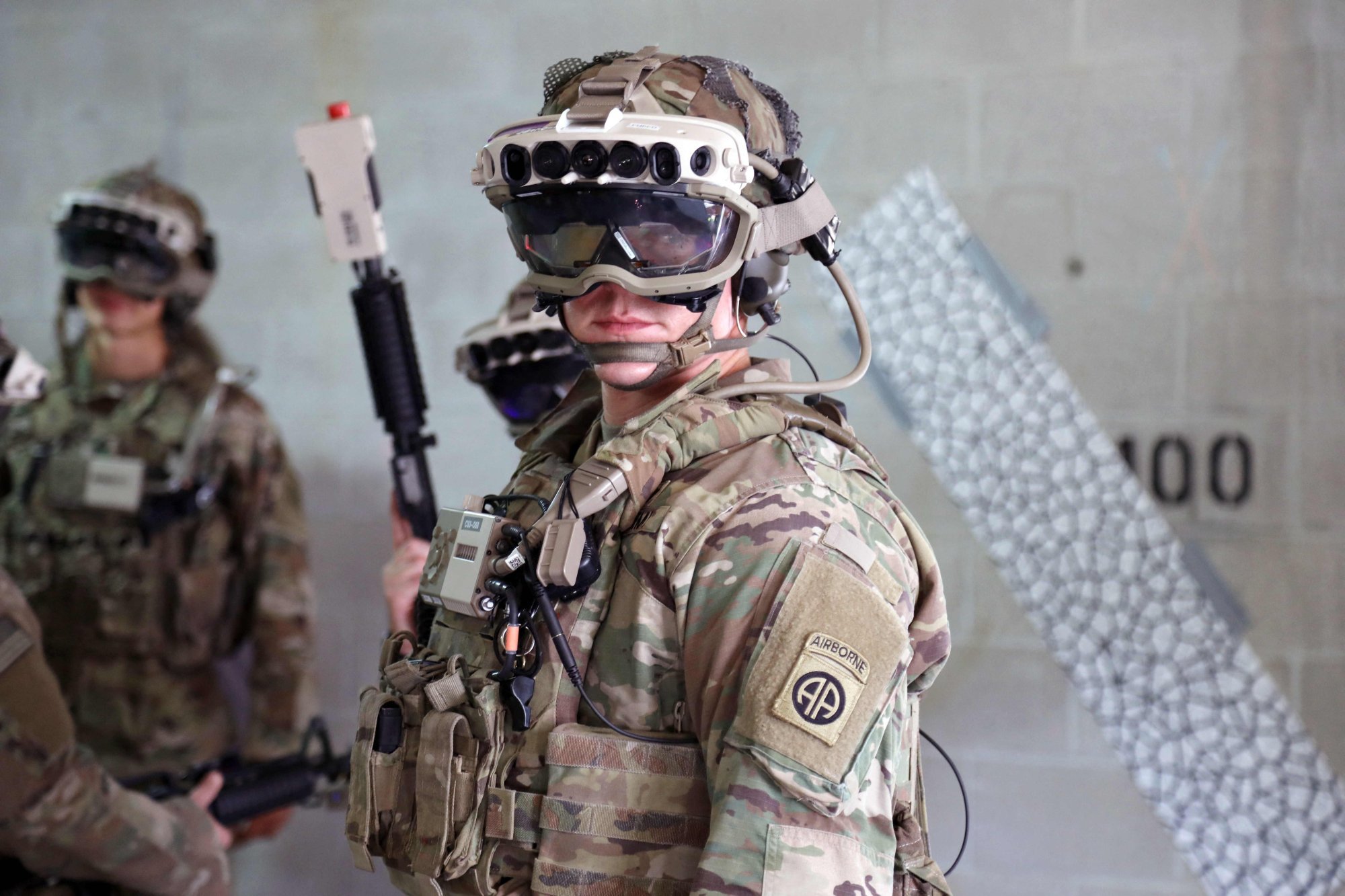PLA Air Force member seen wearing the US tech firm’s HoloLens 2 goggles in video clip posted online by state broadcaster CCTV. Mixed-reality system used to carry out ‘virtual disassembly before examination’ of an aircraft engine, according to the post. — SCMP
China’s military is apparently using mixed-reality goggles made by US tech giant Microsoft to maintain its equipment, according to a video clip released by state broadcaster CCTV.
In a post on social media network Weibo on Tuesday, CCTV said a unit of the Eastern Theatre Command Air Force was using a “mixed-reality maintenance system” for its daily operations.
The accompanying video clip shows a member of the PLA Air Force wearing the HoloLens 2 headset developed by Microsoft. A 3D hologram in front of him shows an interface with Microsoft apps.

The state broadcaster did not name the device in its Weibo post. Microsoft did not respond to inquiries from the South China Morning Post.
In recent years, the United States government has further restricted the sale of hi-tech equipment and advanced technology to China that it believes would aid the Chinese military’s advancement.
Microsoft’s HoloLens 2 headset is freely available for consumers to purchase in China.
According to the CCTV post, the mixed-reality maintenance system was used to carry out a “virtual disassembly before examination” of an aircraft engine. The post said it could ensure that such engines are replaced with appropriate speed, accuracy and reliability.
It comes as China is trying to accelerate innovation and the use of advanced technology in its military as part of a push to modernise its armed forces. President Xi Jinping has set the target of having a “world-class military” by the middle of the century.
The People’s Liberation Army has reportedly been using virtual reality technology in its training for years. It has also introduced an augmented-reality system that allows soldiers to control multiple unmanned aircraft or vehicles, according to a documentary released by the PLA in August.
The United States – which sees China as a “pacing challenge” – imposed a sweeping set of export controls on advanced artificial intelligence chips in 2022, aimed at restraining China’s military modernisation efforts. New rules were released two months ago to close loopholes in those curbs.
Microsoft launched the HoloLens goggles in 2016. The mixed-reality technology allows the wearer to see digital images laid over the real world, and to interact using hand and voice gestures.
The headset has been used in a broad range of settings – from manufacturing to healthcare and education – and a version of it has also been used by the US and Israeli armies.

In 2021, Microsoft won a contract to supply the US Army with more than 120,000 mixed-reality headsets in a deal worth up to US$21.88 billion over 10 years. It had initially supplied the US Army with prototypes of the device – known as the Integrated Visual Augmented System, or IVAS – in a US$480 million contract in 2018.
The headsets allow US soldiers to use holographic imagery for training, with 3D terrain maps projected into their field of vision at the click of a button. The US military has said the IVAS can provide improved situational awareness, target engagement and informed decision-making.
Chinese tech companies including Xiaomi, Lenovo and Oppo are also developing and manufacturing mixed- and augmented-reality devices. – South China Morning Post





